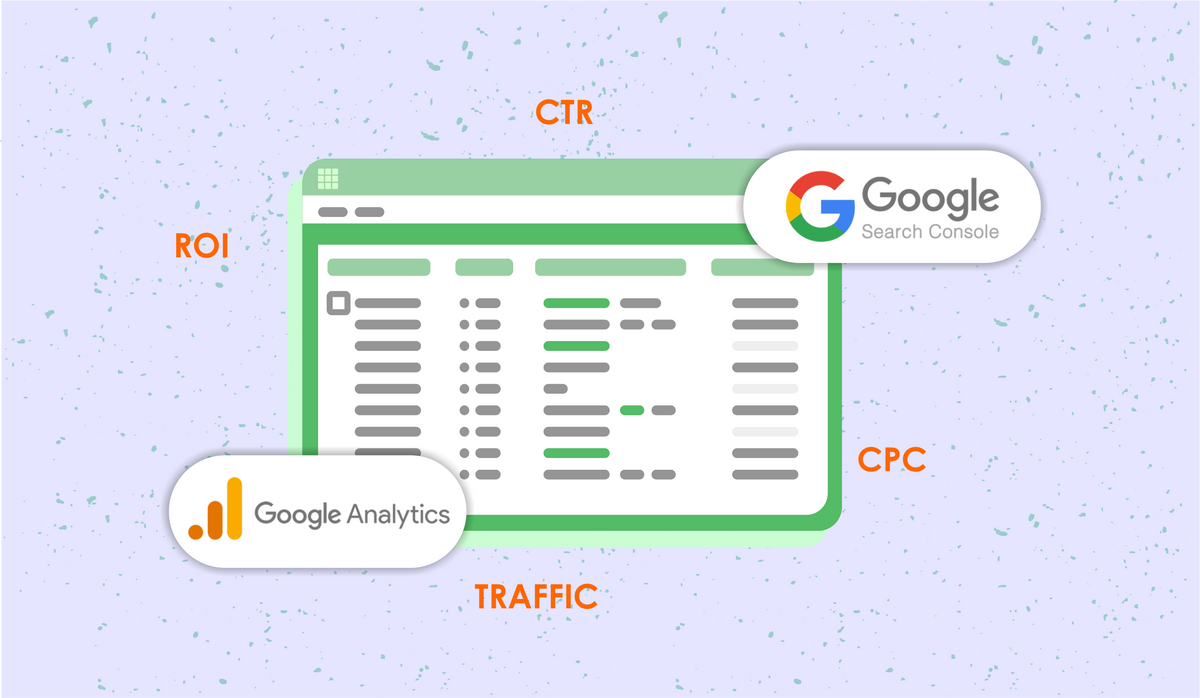Top 10 Marketing KPIs to Measure for your Online Business
Do you know which Marketing KPIs are relevant for your business? What happens if you track all possible digital marketing KPIs? Can you automate your marketing KPI tracking with Stackby? Find out in this blog!

When you are running an online business, marketing KPI is a term that becomes a part of your day-to-day life. Tracking these metrics tells a lot about your marketing strategies.
Wondering what they are and how they can help you grow your business? Let us find out!
Running a business requires some serious multi-tasking. For a business to make a profit, all the departments have to work in tandem. The R&D team should develop new ideas or products that are the need of the hour; the marketing and sales team have to devise a marketing and sales strategy that will bring in more customers and increase revenue.
One of the terms used quite often by the marketing departments is Key Performance Indicators (KPI).
But what is a KPI? A KPI or Key Performance Indicator in marketing is a quantifiable measure of the progress towards achieving a goal. The KPIs have a huge impact on your business outcomes. KPIs can offer a realistic look at your ability to achieve a set goal or target and help keep the employees motivated in working towards the target.
The marketing department might track the digital marketing KPI or use the KPIs to justify raising the budget for a particular campaign. Either way, it raises the question, what exactly are KPIs in marketing?
What is KPI in Marketing?
The marketing team in a business will develop various ideas and campaigns to increase brand awareness and client base. However, they need a tangible way to understand whether the strategy is working or not.
KPIs or Key Performance Indicators in marketing are exactly that. Marketing KPI is a numerical value that can shed some light on the success or failure of a marketing campaign. In other words, It helps quantify the performance of the marketing campaign. Common digital marketing KPIs examples are how many new customers bought your product or the revenue generated in a month etc.
Top 10 Marketing KPIs for Your Online Business
There are a large number of KPIs that can help gauge the performance of a marketing strategy. For instance, social media marketing KPIs, product marketing KPIs, digital marketing KPIs and so on. All of these marketing KPIs may not be relevant for all businesses or campaigns. On seeing the list of KPIs, it is easy to feel confused and overwhelmed.
Tracking the wrong KPI using a marketing KPI tracker can give an incomplete picture or a wrong notion about the performance of a campaign. It can lead to wrong decisions that can, in turn, derail a business's growth. To select the right marketing KPIs, there needs to be a clear idea about the end goal of the marketing campaign. The type of business should also be considered while making the selection.
However, there are some common marketing KPIs that all online businesses should track. Here are the top 10 KPIs in digital marketing.
1. SEO Keyword Positions
Search engines rank websites for various search queries based on the keywords on the page. Their algorithm automatically scans the page and determines the keyword as there is no other way to specify the keyword.
How a website ranks for various keywords is an important marketing KPI. A good ranking means that the result shows up on the first page and is likely to be seen by viewers.
Read: How to optimize Youtube for SEO?
2.Click-Through Rate
The click-through rate is used to measure the performance of ads and email marketing campaigns. The click-through rate can be defined as the ratio of the number of people who clicked on ads/emails to the number of impressions an ad/email gets. The click-through rate indicates how effective the ad or email is in leading visitors to the website.
3.New Users from This Campaign
The end goal of most marketing campaigns is to bring in new customers, users, or subscribers. Counting how many new customers or users are received during or immediately after the marketing campaign or after implementing a marketing strategy is a valuable KPI in digital marketing.
There can be a comparison of how many new customers were acquired before and after the new strategy was implemented to gain insight into the effectiveness of the marketing campaign.
4.Bounce Rate
When we throw a rubber ball on the ground, it hits the ground and immediately bounces off to a new location. Consider the ball to be a visitor and the spot on the ground to be the website. Bounce rate is a digital marketing KPI that tells us how many visitors leave the website.
These visitors likely did not find what they were looking for on the site or visited it by mistake. A high bounce rate shows that the website is not providing engaging or relevant content that captures the visitor's curiosity. It also means that it might be time to revamp the website and optimize it for the appropriate keywords and load time.
5. Conversion Rate
Marketing campaigns often aim to increase the number of sales or find new subscribers to the website. Conversion rate is a marketing KPI that helps them track such goals. Basically, the percentage of visitors who successfully achieve such goals is the conversion rate.
When a user visits a website, the website should be designed to lead them to convert into a customer. If there is a high conversion rate, it means that the marketing funnel is working as intended. However, if there is a low conversion rate, it might be an indication that customers are losing interest somewhere along the way.
6. Revenue
Every marketing campaign's ultimate aim is to increase revenue. Tracking the marketing revenue helps gauge the success of the marketing campaign, making it an important product marketing KPI. Revenue is also used to calculate other marketing KPIs such as ROI
7. Cost Per Lead
Cost per lead is another product marketing KPI that allows us to analyze the cost-effectiveness of a marketing strategy. A lead is someone interested in the business and shows interest by completing some action.
The cost per lead can be calculated by dividing the total cost of a campaign by the number of leads generated. If a business is running marketing campaigns or advertisements on various channels, then comparing the cost per lead of each channel can help us identify the most cost-effective channel.
8. ROI of the Campaign
The Return on Investment (ROI) is a vital marketing KPI. It tells us how much revenue the business generated from a particular marketing campaign. ROI is an important KPI for marketing manager as it is a way to justify the marketing budget.
It also helps us analyze the performance of each campaign. It can also help weed out the non-performing or underperforming campaigns and improve the overall spending.
9. Traffic to Lead Ratio
Is the website doing what it should do?
Is it capable of converting visitors into leads? The traffic leads ratio is a digital marketing KPI that can help in answering such questions. If the visitors are large in numbers, but only a small percentage are becoming leads, then the website performance should be evaluated to understand why visitors are not becoming leads.
10. Impressions
An impression is recorded when a user sees the link. The user does not have to click on the link for it to be an impression. Google records an impression if the page has shown up on the page that the user is looking at, even if they have not scrolled far enough to see the link.
Impressions are social media marketing KPIs that impacts the SEO rankings and play a part in increasing brand recognition, making it a valuable marketing KPI.
How to Automate your Marketing KPIs With Stackby?
Constantly managing the marketing KPIs can become quite troublesome and repetitive. Automating it using a marketing KPI tracker can save a lot of time. It also ensures that any KPI in marketing always has the most updated information.
In addition to the KPIs mentioned above, the marketing KPI tracker by Stackby also lets you track budget, SEO clicks, users, hits, total customers, etc.
The marketing KPI dashboard helps automate the tracking of various KPIs of the marketing campaigns. Here is how we can use this tracker:
- Visit the Stackby website, go to the Templates menu and click on Stackby One.
- We will see a page displaying all the templates. Click on the Marketing KPI Tracker.
Marketing KPI Tracker Template in Stackby One
- You can now see the marketing KPI dashboard. Each row on the tracker corresponds to a marketing campaign. We can view all details regarding the marketing campaign ranging from the objectives to the various digital marketing KPIs.
- You can then connect columns to Google Analytics API to bring traffic along with user analytics and Google Search Console API to bring Search Analytics API.
- With Google Analytics API, you can bring data like Users, New Users, Sessions, etc. If needed, you can add new columns by clicking on the field with 'data' under the Analytics API column and then selecting the marketing KPI that you want the marketing KPI tracker to track.
- With Google Search Console API, you can bring data like SEO Impressions, Clicks, %CTR, Number of Keyword Positions, etc.
- The Conversions column lets you track the marketing KPI related to conversions, such as conversion rate, number of people who started the goal, and the number of people who completed it. You can also track cart abandonment here.
- You can also create columns that track marketing KPIs such as cost per lead and ROI derived from other KPIs using formulas.
- The formula for Cost per Lead is Budget/(Number of users who completed the goal)
- The marketing KPI ROI can be calculated using the formula: ROI = (Revenue - Budget)/Budget.
- The column Analytics API lets us schedule when to refresh the marketing KPIs. Select the frequency with which we would like to refresh the details, and the marketing KPI tracker automates updating information.
Key Takeaways
Marketing KPI plays a huge role in helping us understand the performance of the marketing strategies and campaigns. They also help to identify areas that need more work in the online business.
The marketing KPI template from Stackby provides a comprehensive overview of various KPIs while also automating the update. Looking at a single marketing KPI is often not enough. We need to look at the top marketing KPIs to get a complete picture. Sign up for free and start tracking your top 10 marketing KPIs automatically.

![Best 14 HR Database Software for Recruitment Agency [Free+Paid] [2025]](/blog/content/images/size/w960/2024/04/stackby--hr-database-software-blog-post-5.3.jpg)
![A Simple Guide on Workflow Management Software [Updated 2025]](/blog/content/images/size/w960/2021/12/work-management-blog.png)

